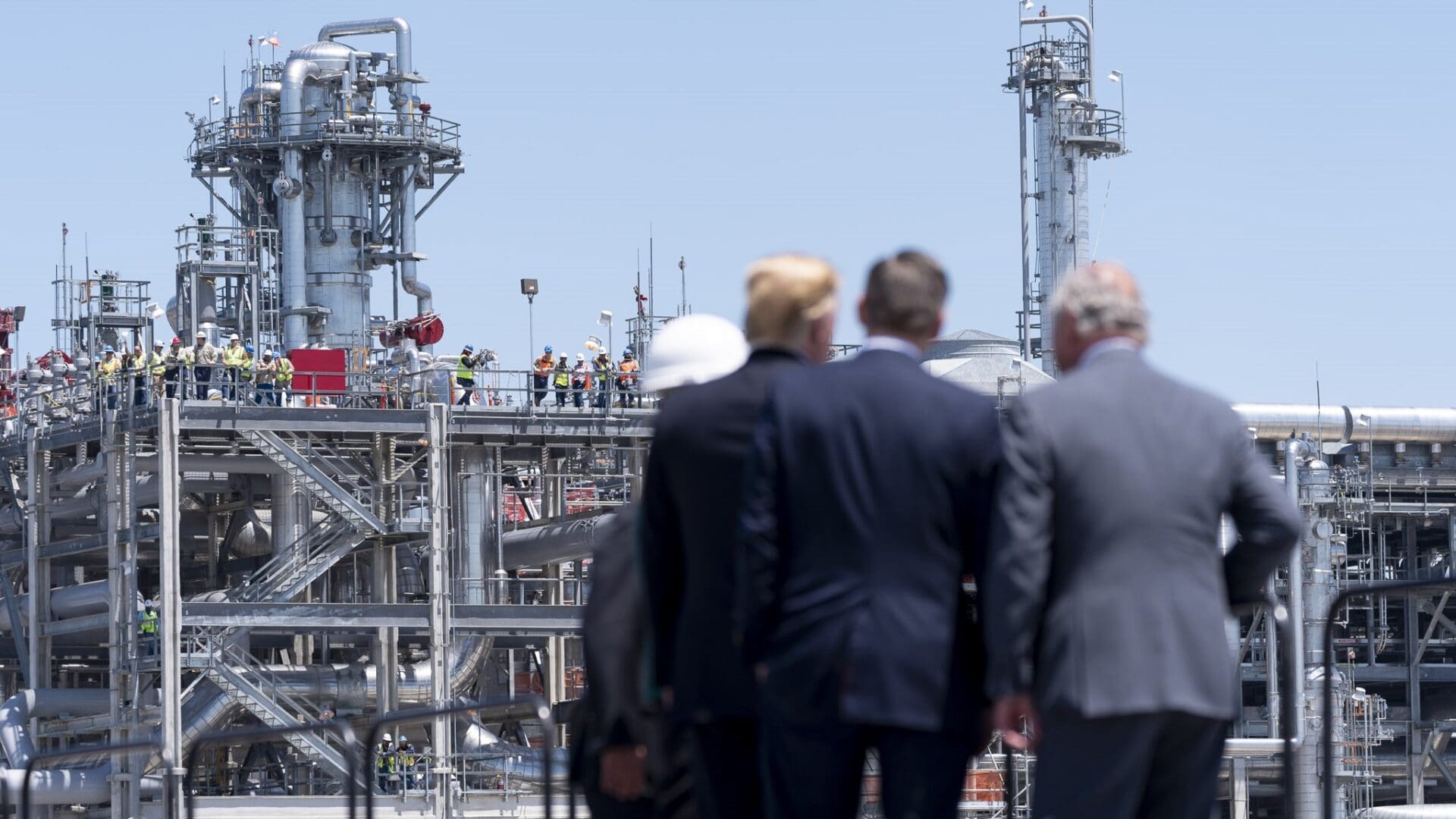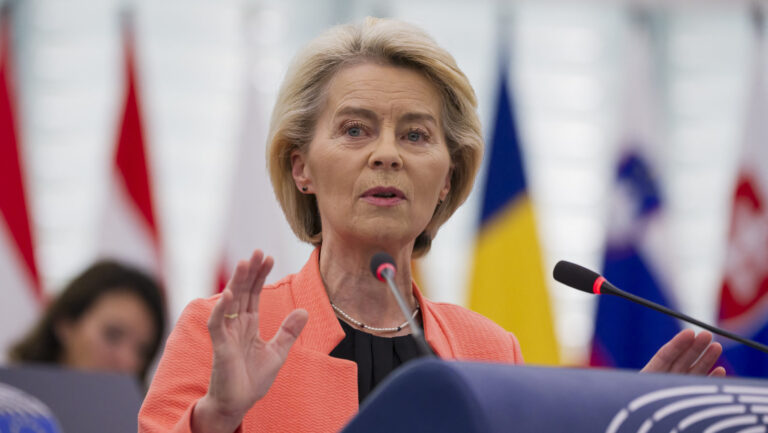Europe’s energy politics are becoming more contentious. To secure their future, Hungary and other nations of the continent’s central and eastern region will have to ground their ideals in reality.
——————
This year in Washington D.C., the advent of November saw the beginning of deliberations focusing on the politics of energy. But rather than just the issues of the United States, the conversation included a region of the world far beyond American shores. The Heritage Foundation, an all-powerful household name in conservative politics, had invited its ideological counterparts, the Polish-based Warsaw Institute and Hungary’s Mathias Corvinus Collegium, from across the Atlantic to D.C. The Heritage summit focused on discussions addressing Europe’s changing energy landscape. For this attendee, the following issues appeared prominent.
As Ukrainian forces continue to fight off the Russian military’s incursions into their nation,
another battle is being waged over Europe’s future between Putin and the West.
Germany had abandoned its own nuclear energy plants for Russian gas, its last three plants shutting down last spring. Hungary and Slovakia remain heavily dependent on imports from Russia to this day. For the rest of the continent, which has cut off Russian energy entirely, a scramble for new sources dominates policymaking.
One focus of the conference explored how America could increase its status as a partner. Since the Trump administration, the push for Europe to abandon Russian liquid natural gas for American power has been a focus of Washington’s European policy and has continued under Biden. While the sales have resulted in the U.S. becoming the top exporter of LNG in the world as of last year, it has not been enough to meet Europe’s demands. How to fill the gap has proven to be a contentious issue.
Regarding the trade-off of Russian for American energy, the factor that was perhaps the most problematic and predictable was that of cost. Energy transferred over a short distance between Russia and Europe as opposed to across the Atlantic from the U.S. will of course come at a cheaper price. However, considering price as the only factor has proven to be poor policy making as demonstrated by Germany. After doing away with its own nuclear reactors over ‘environmental concerns’ and instead relying on cheap Russian sources, the price paid proved to be in security and stability rather than in Rubles. The scheme remains a current issue. Hungary still has Russian LNG and nuclear power as part of its portfolio with plans to be completely divorced from Moscow not materializing until 2050.
The matter of who Europe establishes relations with in energy ventures proved to be one of the primary issues but not the only one. The issues of government-run versus free-run markets as well as domestic versus international sourcing were debated. What first led Germany, along with the rest of Europe, to their precarious vulnerability with Russia was partially its ideologically oriented policy, along with a disregard for geopolitical realities in a focus on the single issue on price. Germany’s long-standing reputation as ‘Russia-understanders’ comes from former Chancellor Willy Brandt’s Ostpolitik, or ‘change through rapprochement,’ which seeks to entice Russia into the European community and its way of thinking through favourable diplomatic and business relations. The zealous focus of Berlin and its ideological vanguards on wanting to protect the environment has also dominated policymaking calculations rather than national needs. The consequences of this utilization of energy policy as an exercise in ideals rather than national well-being are self-evident.
Today, a chill is pervading the cities of Budapest, Warsaw, Bratislava, and Prague with fall half-over and the advent of winter not far behind. Last year, the threat of energy rationing and mind-breaking inflation seemed inevitable with the Russo-Ukraine War’s impact on the energy markets, threatening to leave Europe cold and in the dark. Providence intervened with a mild winter temperature. But fears remain potent with a return of winter with doubts that fortune will grace Europe’s weather twice.
What potential solutions exist for the energy issues facing Europe are of interest beyond Washington’s think tanks. On the night prior to the conference, the Hungarian embassy hosted a reception for the forum’s participants, complete with impressive Hungarian cuisine. Diplomats and various officials made conversation with their guests about the forum’s topic. Hungarian media was present at the conference’s conclusion, gleaning quotes from the panellists and presenters. The reason for Budapest’s interest in the energy intrigue takes little effort to understand.
In Hungary, the issue of Russian energy remains potent.
Budapest continues to import Russian gas and rely on Russian nuclear reactors, much to the chagrin of Brussels and Washington. Hungary ultimately does seek to divorce Russian sources from its portfolio, but such plans will not materialize until 2050. Unlike Germany however, Hungary’s calculations have been based more in Realpolitik than ideology. Should Hungary have immediately shut out all Russian gas imports, it would have faced an energy deficit along with prices its population would likely have not been able to afford. While its calculations were more rational than most of Europe’s however, Budapest remains subject to Russia’s influence through its energy investments.
But one of the most tumultuous topics of the conference has proven to be a major challenge in Washington’s efforts to charm Europe away from Russian gas and nuclear power: what does America offer to nations looking for alternative sources? As established earlier, U.S. energy output does meet the demands of Europe and what it does offer is at a higher price than what Russia can offer. The energy question for Europe poses two major inquiries. The first question is to America: How much energy it is willing to export at the cost of its ideological bent? Biden is beginning to take heat from his liberal base and even inside his own cabinet for the impact energy exports to Europe are purported to have on the environment. How far is it willing to go? The second question is to Europe: What cost is it willing to incur: higher prices in energy or higher risks in security?
The conclusions of the Heritage Foundation’s conference predictably supported the conservative position of ramping up American exports to secure European energy stability and American influence, pushing back Russia’s own power across the continent while questioning the validity of the environmentalists’ alarmism in the process. While U.S. policy is already moving in such a direction through its increased LNG exports, a possible conservative administration in 2024 seems to have its agenda set to push the effort into overdrive.
For both America and Europe, the answer will determine whether Europe will be able to keep its home heated and its lights on. Between ideology and realism, American and Russian relations, and the price exacted in terms of finances and security, the choices may lead to consequences between light and darkness, both literally and metaphorically.








